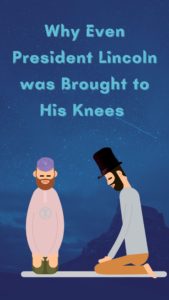“The exodus
from Egypt occurs
in every human being,
in every era, in every
year, and in every
day.”
– Rabbi Nachman Breslov (1772 – 1810) Ukrainian Rabbi who revived the Hasidic movement
How would you describe your own exodus from those things that plague you most, lately?
Kalush Orchestra – Stefania – Ukraine 🇺🇦 – Eurovision 2022 (3:18)
A Seder Without Wine
By Nissan Mindel
Published and copyrighted by Kehot Publication Society
A Seder without wine? How can it be? you ask. Everybody knows we have to drink four cups of wine at the Seder, in remembrance of the four stages of liberation from Egyptian bondage.
Indeed, so important are these four cups of wine that we make a blessing on each of them, while on the first cup of wine we make the kiddush.
A Seder without wine is almost unthinkable! Yet, it happened once upon a time when a whole Jewish community had to make the Seder without wine. This is what our story is about.
It happened many years ago, in a land ruled by a king who was not unfriendly to the Jews. Indeed, one of his best friends was the rabbi of the community, whom the king admired for his wisdom and learning, kindness and humility, a combination of virtues he did not find among his courtiers. The king just loved to spend time with the rabbi, discussing matters of importance. And when the king had any problem, he asked the rabbi’s advice, and he never had any cause for regret.
…
Everything would have been well, except that the king had a prime minister who was no friend of the Jews, and who was especially jealous of the friendship the king showed to the rabbi.
One day the prime minister asked the king why he was showing such friendship to the rabbi. “Why not?” replied the king. “I admire his wisdom and learning; there is nothing but kindness and fear of G‑d in his heart, and he is most loyal to me and wishes me well. He certainly deserves my friendship!”
“What if I proved to Your Majesty that the rabbi is not all that he pretends to be, and that behind Your Majesty’s back he will not hesitate to break your laws, and speak unkindly of Your Majesty?”
“I doubt very much if you can prove any such thing,” replied the king confidently. “But if you do, I will know how to deal with him. On the other hand, if you fail to prove your reckless accusation, I will know how to deal with you. And so, my dear Prime Minister, how do you propose to prove your accusation?”
…
“The day after tomorrow, the Jews will begin celebrating their Passover festival. On the first two nights of the festival they have a special feast, a ‘Seder,’ they call it, when they drink four cups of wine. So important is wine for their Seder that a Jew will gladly sell his last shirt to be able to have wine for the Seder.
“Now, I suggest, Your Majesty, that you command the rabbi to tell the Jews that no one, not even the rabbi himself, shall drink any wine at the Seder. Then you will see if the rabbi and the other Jews carry out your order, and what they say about Your Majesty.”
“And how are we going to find this out?” asked the king.
“I know that before the rabbi sits down to his own Seder table, he visits the Jewish guest house, where a public Seder is arranged for the poor and homeless wandering Jews who happen to be in town. If we disguise ourselves, it will be easy for us to join the crowd and witness the Seder.”
“So be it,” the king agreed. “But I warn you: you are playing with your head!”
“It’s my head against the rabbi’s head,” the prime minister challenged.
The following day the king sent for the rabbi, and when he appeared, the king said to him: “I command you to tell the Jews that no one, not even you, my friend, shall drink any wine at the Seder on penalty of death!”
…
The rabbi was surprised and saddened, but he answered dutifully: “Your Majesty’s command shall be obeyed.”
True to his word, the rabbi sent out word to all the Jews in the city: “By order of the king, Jews are forbidden to drink wine at the Seder. But except for that, the Seder should be celebrated in the usual way, and with the usual joy and inspiration. And each time, when the Haggadah calls for the drinking of a cup of wine, an empty cup should be lifted,and the following prayer recited:
“‘Master of the World! It is revealed and known to you that we sincerely desire to do Your Will, but His Majesty the King forbade us to drink wine tonight on penalty of death. Since, according to Your holy Torah, the saving of life puts aside the mitzvah of the four cups, we pray for Your forgiveness for not drinking wine tonight.’”
In the guest house, the table was set for the Seder. For each place setting there was a Seder plate, with matzah, bitter herbs and the other required items; there were spotless wine glasses and cups, and bottles filled with red wine.
Soon the room was filled with celebrants, who seated themselves around the table. Among them were two strangers, dressed as poorly as the rest; but since all were strangers, no one paid any particular attention to them. Certainly it did not occur to anyone that those two were none other than the king and his prime minister.
Presently the rabbi came, and all rose respectfully in his honor. He seated himself at the head of the table and greeted everyone with a hearty “Good Yom Tov.”
…
The first item of the Seder was, of course, Kaddesh: to make kiddush on the first of the four cups of wine. The rabbi reminded all the guests of the king’s decree. He bade them to rise and lift up empty wine glasses and recite after him the prayer he had composed for this occasion: “Master of the World,” etc.
Everyone faithfully followed the rabbi’s instructions, and the wine bottles were left untouched. Otherwise, the Seder proceeded as joyously and inspiringly as ever.
The king and his prime minister sat through the entire Seder and heard the same prayer repeated four times. Everyone, including the king, enjoyed the Seder meal; only one person sat there like a bereaved man among bridegrooms—the unhappy prime minister.
When the Seder was over, the king and his prime minister left the guest house together. Before parting at the gate of the palace, the king told his prime minister to be sure to appear before him the following day in mid-afternoon.
The following morning, the king sent a messenger to the rabbi to summon him to appear before the king in mid-afternoon. At the appointed time the rabbi and the prime minister met at the gate of the palace, and both were ushered in before the king.
…
Turning to the rabbi, the king said: “Unknown to you, worthy Rabbi, I and my prime minister were your guests at the Seder last night. We were disguised, of course, and we came to see with our own eyes if you would obey my order. The foolish prime minister had staked his head, assuring me that you would not.
“I am happy that you did faithfully carry out my order, though I sincerely regret having caused you and all the Jews unnecessary heartache by interfering with your sacred Seder celebration. But the prime minister shall pay for his folly. I place him in your hands: choose any kind of death for him, and it shall be done!”
“Your Majesty,” the rabbi replied, “ever since we lost our Sanctuary in Jerusalem, no rabbinic court is authorized to pronounce a death sentence on anyone.”
“In that case,” said the king, “I shall pronounce his death sentence: he shall be hanged publicly forthwith!”
Then the king told the rabbi that the decree prohibiting wine drinking was lifted, and the rabbi could now make it known to all Jews that they could again drink all the wine they wanted.
The happy news quickly spread among the Jews and was received with great jubilation. The second Seder was celebrated with extraordinary joy and deep gratitude to the Almighty, in celebration not only of the miracles and wonders of the liberation from Egypt, but also of the miracle that happened to them in getting rid of a cruel enemy.
It was the happiest Passover that they had ever celebrated.





